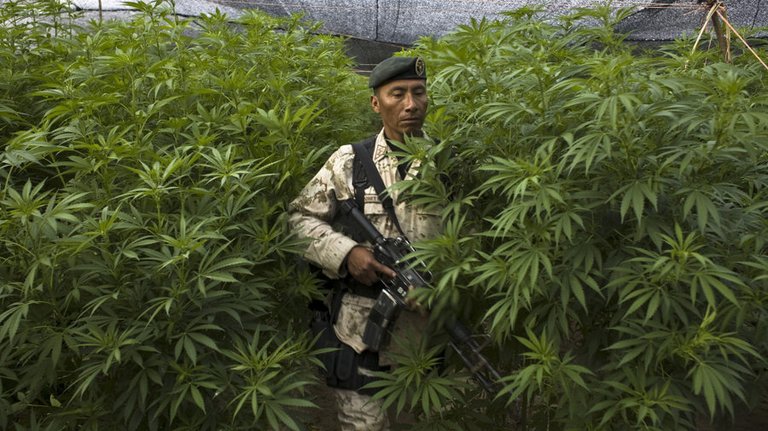
Comparing Latin America to the US we can see that there are different ways that we can deal with our drug policies by adopting some of their policies. While we are the richest nation in the world, we spend large sums of money on incarceration through prisons, judicial process, and economic damage due to felons leaving prison unable to attain proper jobs or education. To attain a superior policy that we have in place, we have to see the differences between the US and many Latin American countries. For example, we have a strong federalized system compared to the centralized system of government that many Latin American countries have adopted. Because of this we have to examine what types of policies would make sense in certain areas of our country.
While countries like Uruguay have completely decriminalized drugs, conservative states like Alabama or Arkansas would not follow their footsteps due to public rejection of drug reform today. While these states still have problems with drugs, a solution might not come through incarcerating individuals but adopting programs like Brazil’s CAP centers where people can find treatment. This type of policy would help these states in the long run by not punishing its residents with bearing the cost of incarcerating individuals for non-violent crimes, and ruining their lives by having it on their record. By saving money in incarcerating massive amounts of people, they can invest their state budget to expand government funded rehab centers within their own state to combat problems such as waitlists and crumbling infrastructure that they face today. Also by adopting community driven rehab centers like Brazil’s CAP’s, they can penetrate into rural areas where problems such as opioid addiction is tearing communities apart.
Besides programs to promote an alternative approach to dealing with drug users, there must also be a reform in how our law enforcement deals with these types of crimes. Today police departments receive criticism due to harsh the harsh treatment of individuals in their communities. Because of this we need to create police departments that individuals in society can trust, but also punish police officers that engage in needless deaths of innocent civilians. A great example would be Ecuador, where reform in its police force has the goal of creating a greater relationship with the community. By establishing a police-community relationship, it allows residents to put greater trust in their police force and paves the way for greater cooperation. We have to observe many countries like Peru and Guatemala to acknowledge that giving greater control to police departments can lead to them instilling fear into society, a path that current drug policy is taking us down.
Programs to end the use of drugs in the US should not be the only thing considered when dealing with our drug problem, but also how the US, Asian countries, and the EU should work hand in hand with Latin American countries to combat the production and trafficking of these drugs into our market. To accomplish this we need to support these government in creating responsible policies that combat drug traffickers but at the same time promote human rights. The US can do this by helping these countries solve their drug problems domestically, which could be done by allocating fund that go towards public policies that promote education within these countries so that its citizens do not have to resort to a life of crime. Examples could be financing low income citizens through scholarships for private schools, helping primary and secondary education through grants, and programs that send teachers to these countries like the Peace Corp. The US can also pressure these countries to support of programs like Brazilian’s CAP and UPP by offering aid or trade deals in return. Pressure must also be put on these countries so that their police departments and military do not engage in oppressive attitudes that cause harm to their communities through extrajudicial killings and corruption.
To create a sensible drug policy here in America, we have to work with other countries around the world to see what policies work best in our communities. We have to observe and acknowledge that countries suffer the same domestic problems that we do, and sometimes those problems are more violent than ours. By combining, modifying and creating policies have worked in other countries, we can create a drug policy that can be a model for the rest of the world to follow.